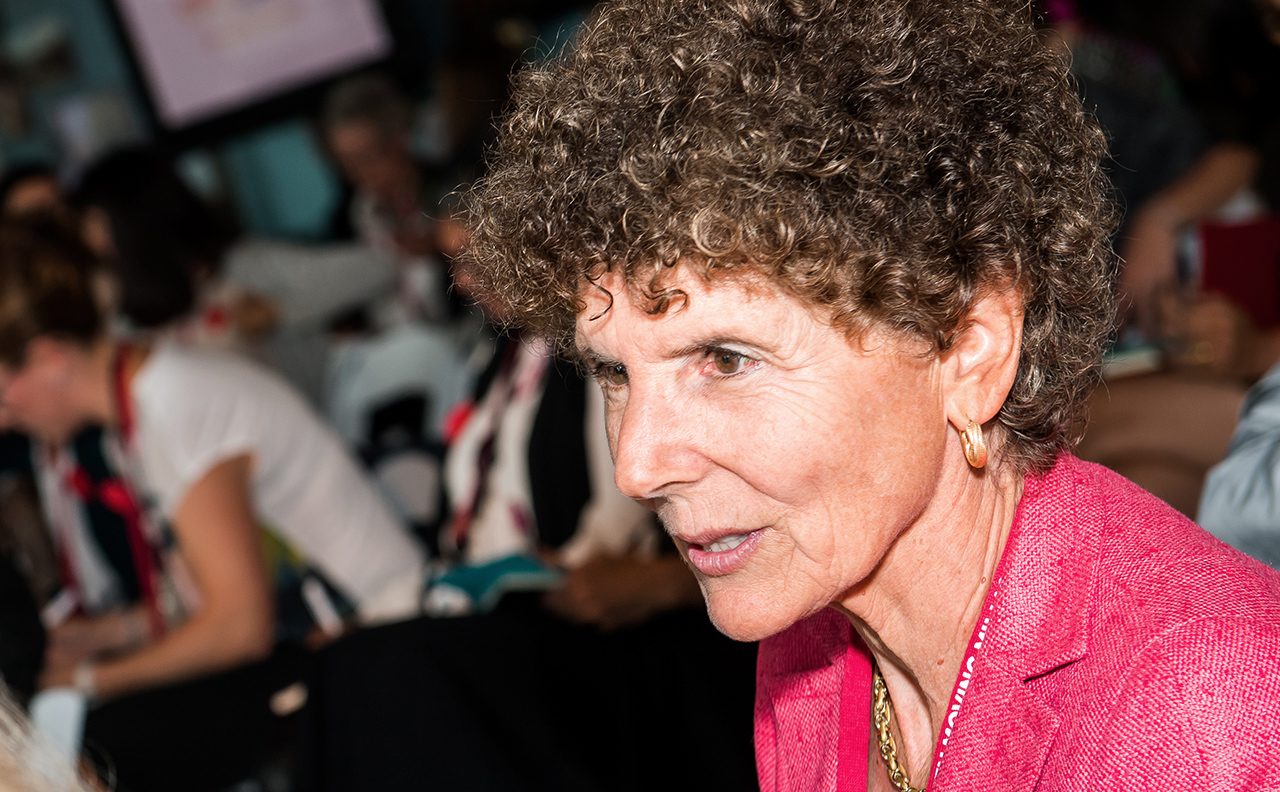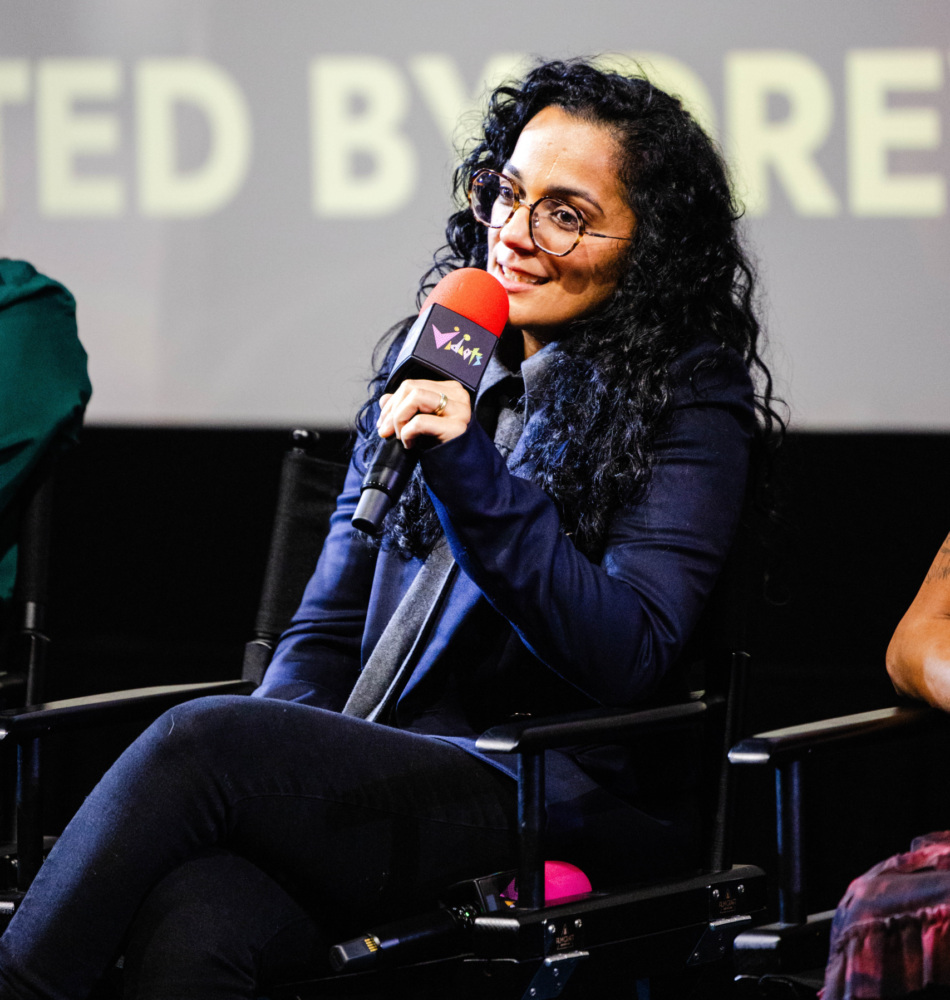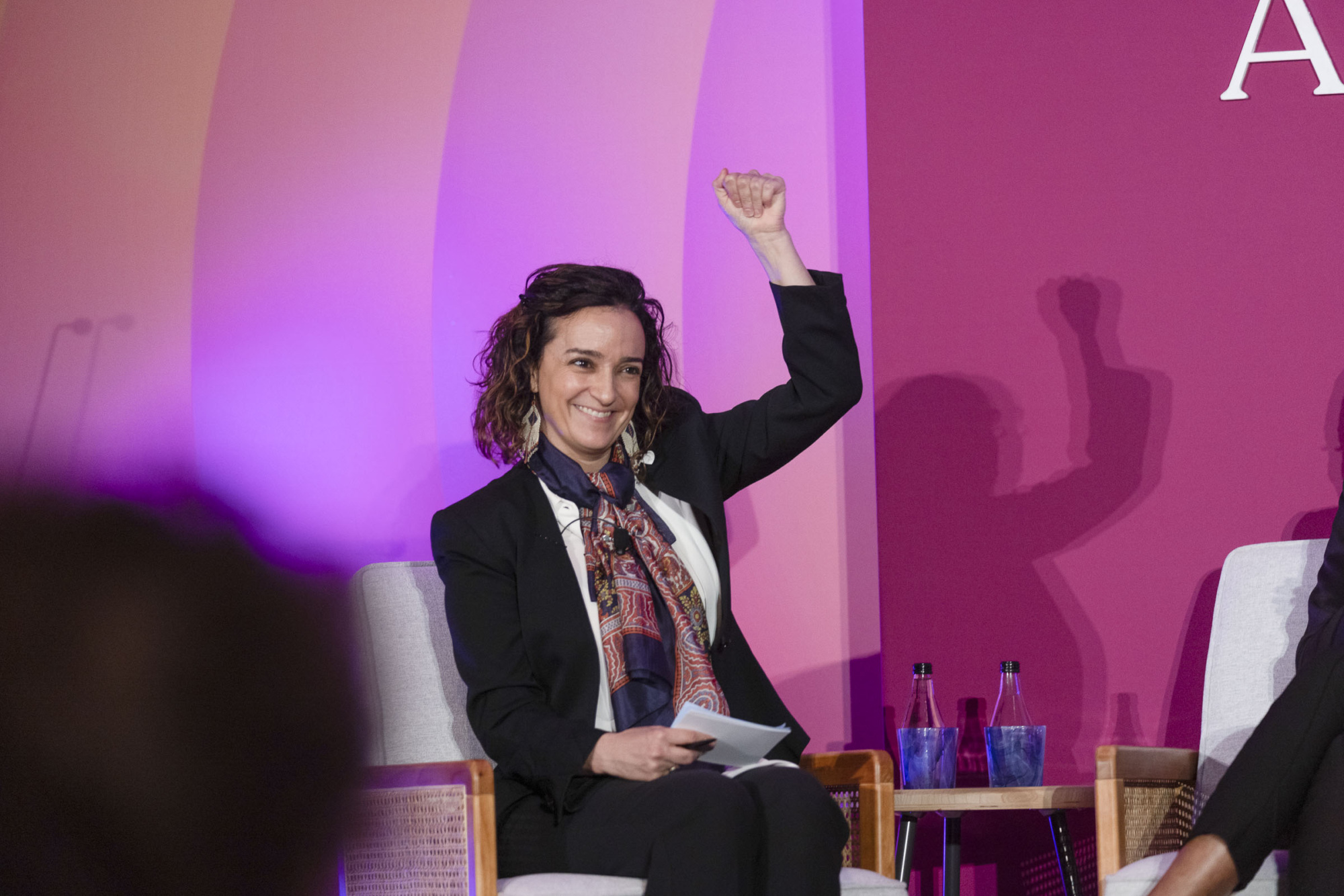I was raised in a close family. We weren’t wealthy, but my parents constantly worked to make a difference. They chaired service clubs, led huge regional fundraising drives for leukemia and local drives to build our school library. By the time I was 12, I was helping wherever I could. I grew up seeing the power and importance of giving time, talent and money to have a positive impact in the world.
When my husband Tom and I sold the family fuel oil business, we had our first opportunity to give back in a big way. In 2007 we started a family foundation. At first, we focused on economic empowerment, particularly microfinance, because the data was clear that when a woman earned money she used it for food, clothing and education for her kids, and it improved her position in the community.
But we soon realized that microfinance was already attracting a lot of funds. Tom and I both started searching for something less well-known but even more compelling, where our money and skills would have a greater impact. I didn’t know exactly what I was looking for, but I knew that I’d know it when I saw it.
That’s when I met Molly Melching. Jim Greenbaum, another WMM member, told me that Tostan, the organization that Molly had founded, had figured out a way to end child marriage and female genital cutting in Africa. These issues weren’t even on my radar screen because I didn’t believe it was possible to do anything about them. After meeting and spending time with Molly, I was really excited. My day job is change management, and when I asked Molly how they were ending these practices, everything she told me was consistent with what I knew about creating change in companies, but she was doing it in communities, in regions, and even entire nations.
When my family and I consider the programs we want to fund, we look for strong leaders with a solid organization who have found simple, innovative and scaleable solutions to long-standing problems that nobody else has been able to solve. In addition, size is important. Our foundation is well-funded, but we certainly don’t have the kind of resources to move or transform an organization that raises hundreds of millions of dollars. We can, however, make a big difference to an organization the size of Tostan. Molly and Tostan were a perfect match for us.
In 2008, we signed on to fund Tostan’s Community Empowerment Program (CEP) in ten villages in northern Senegal. A local facilitator goes into a community for three years. They discuss human rights and democracy, health and hygiene, and problem solving. As part of the problem-solving module, she asks them to figure out which of their practices lead them toward their goals, and which take them away. Through this process, the men end up supporting the empowerment of the women, and together, they create systemic change that radically improves the lives of women and girls.
In 2009, my family and I went to visit Tostan and the villages whose CEP we were funding. It was incredible. When we got to the first village, a crowd of people welcomed us.
The chief said: “We now understand the importance of human rights. Since we know that a man doesn’t have the right to beat his wife, we had to discuss what we will do if he does beat her, and she decides to leave him. We decided we need to support her. We have ended child and forced marriage, and we are discussing the end of female genital cutting.” This was only 8 months into the 3-year program.
I never understood the impact I could have in the world until I got involved with Tostan. I never imagined the look on my children’s faces when they saw how much it meant to the people there. There are about 800 people in a village. To realize that we had the ability to fund a program in 10 villages that would change the lives of 8,000 people forever – and that they would then reach out to another 8,000, to change their lives – was beyond empowering. It was transforming.


